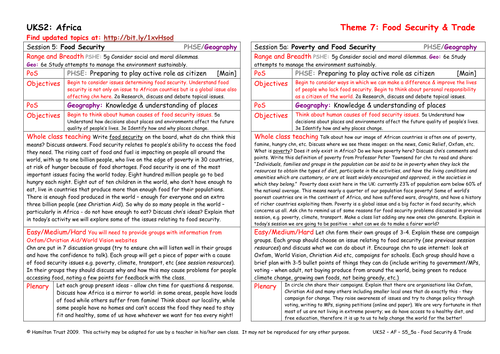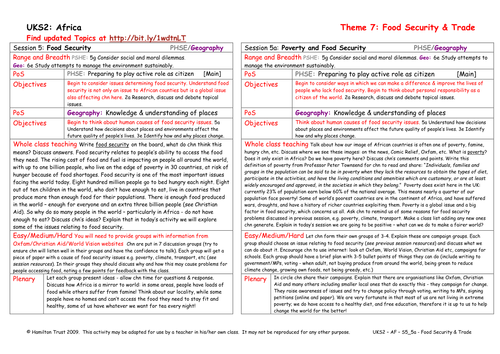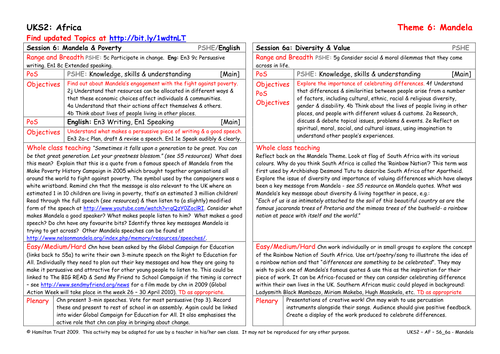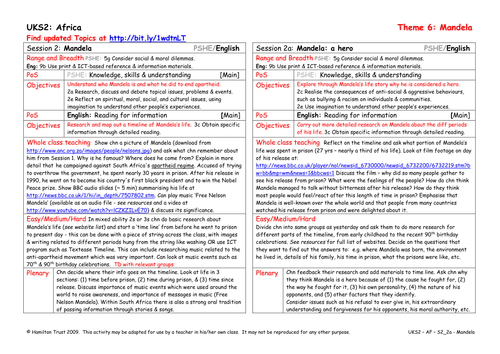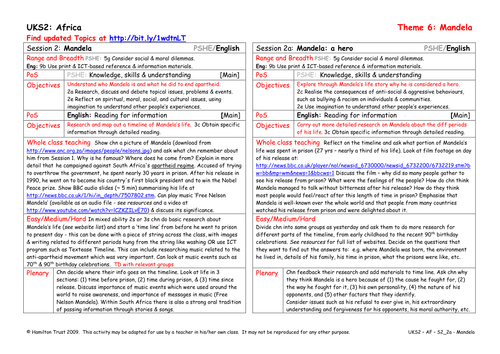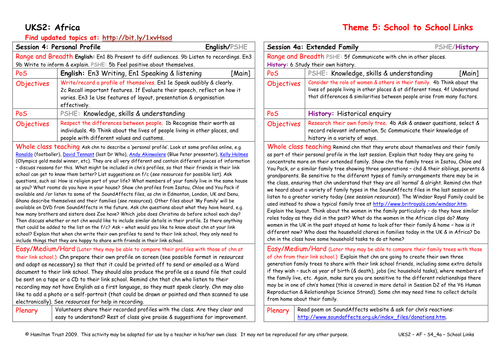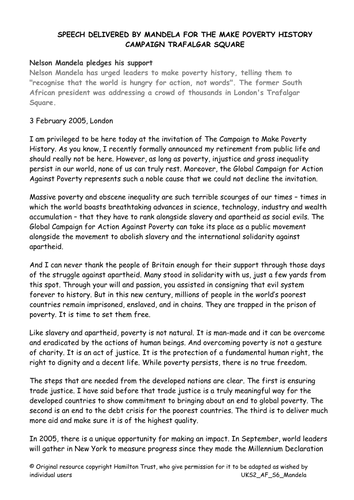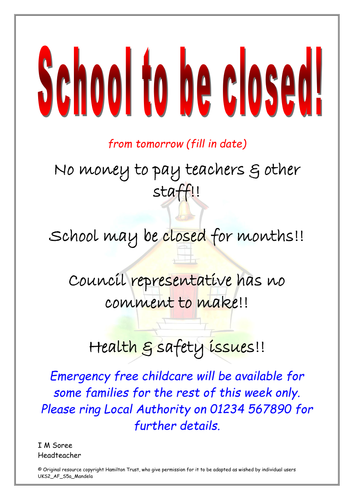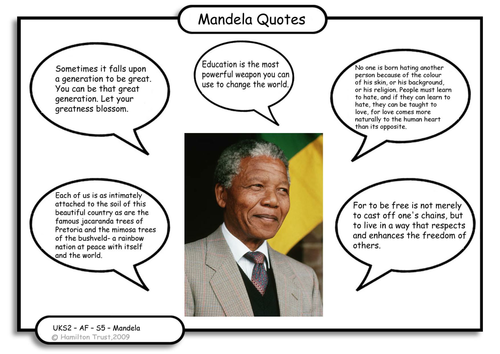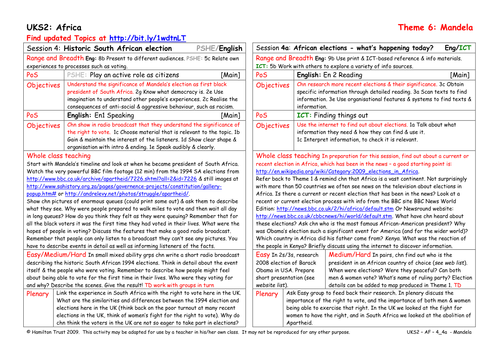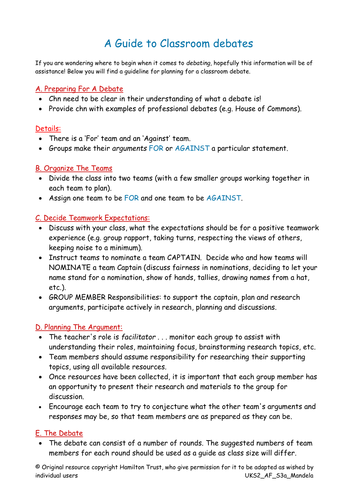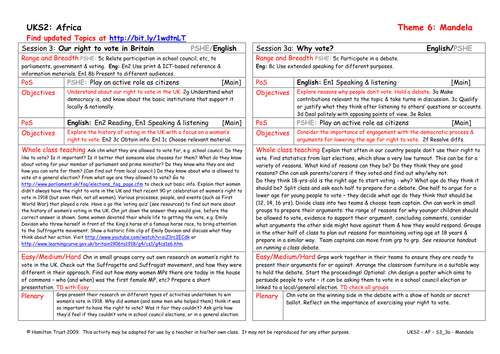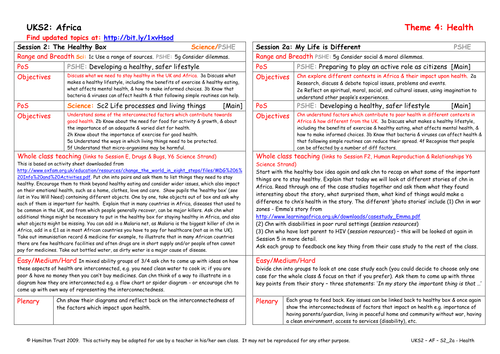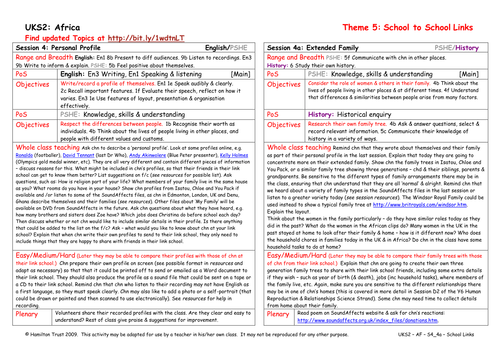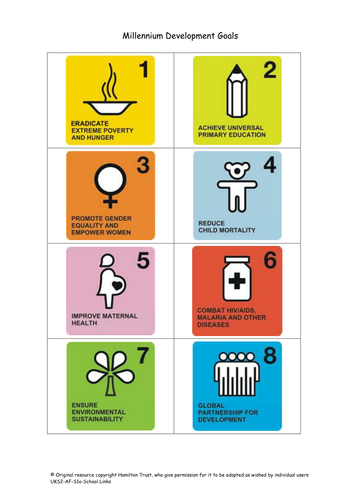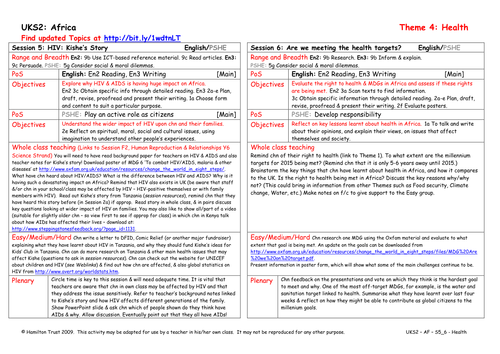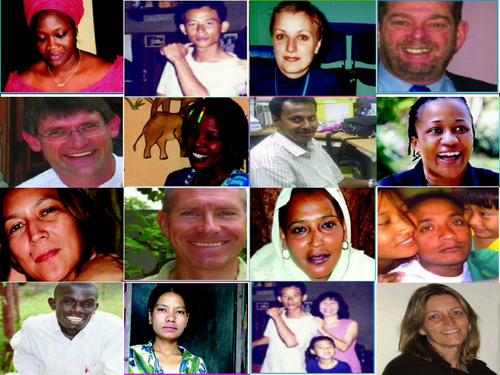
397Uploads
10041k+Views
11644k+Downloads
Citizenship

Poverty and Food Security
Children think positively about ways in which we can help to improve the lives of people who lack food security. Thinking about our responsibilities as world citizens, children discuss ways of campaigning to change the causes of lack of food in Africa.

Food Security
Children begin to consider issues determining food security. This session helps them to understand that food security is not only an issue for African counties but is a global issue also affecting us here. Children work in groups to discuss different causes.

Diversity and Value
Through artwork/ poetry/song the significance of the ‘Rainbow nation’, and of valuing diversity, is celebrated.
Suitable for years 5 and 6.

Mandela: A Hero
Look in more detail at Mandela’s life and in particular share with children a film of his release from prison. Reflect on reasons why Mandela is considered a hero by so many people all over the world. Add further details to the timeline.
Suitable for years 5 and 6.

Mandela
Link apartheid to Mandela. Who he is, where he comes from, why he is so famous, right up to the present day. Use internet and books to find information about Mandela’s life and start to develop a time line as a useful tool to refer to throughout the theme.
Suitable for years 5 and 6.

Journey To Jo'burg
Explore in more detail the history of apartheid in South Africa, with links to Mandela. Look at the signs that were displayed.
Pick out examples of effects of apartheid on non-whites in Journey to Jo’burg, and act out short scenes that show these effects.
Suitable for years 5 and 6.

Apartheid
Examine the system of apartheid through a class role play activity. Introduce Nelson Mandela and discover what children already know about him. Children reflect on their own feelings during the role play. Start reading Journey to Jo’burg. Suitable for years 5 and 6.

Personal Profile
Use celebrity profiles to decide what children might include in their personal profile to introduce themselves to their link school friends. Listen to Ghanaian children describing themselves and their families. Prepare own profiles on screen or as recordings.

Mandela and Poverty
Children study a Mandela speech on poverty and analyse why it’s so importance in terms of content, context and process. Children plan and write their own speech on the right to education.
Suitable for years 5 and 6.

The Right to Education
Through role play children consider for themselves the impact of no access to school.
They plan a poster campaign or write a persuasive letter to reopen their school. Links to Children’s Rights to Education.
Suitable for years 5 and 6.

Mandela and Education
This session examines through real stories the varied reasons why 40 million children in Africa don’t attend school. Children play a ranking game to explore obstacles to education.
Suitable for years 5 and 6.

Historic South African election
Black Africans were very eager to vote in the 1994 South African election. Discuss the significance of Mandela’s election as the first black president in South Africa. Use historic film footage to show queues of voters and reactions to the election.
Suitable for years 5 and 6.

Why Vote?
Discuss facts about voting in the UK: not everyone exercises their right to vote. Engage children on the right to vote and its significance in their own country. In two teams for and against, debate the issue of lowering the voting age.
Suitable for years 5 and 6.

Our right to vote in Britain
Examine voting in the UK, recent elections, and why we vote. Children use a quiz to explore the history of voting in the UK and focus on women’s right to vote, and then do further research. Watch film footage of Emily Davison.
Suitable for years 5 and 6.

The Healthy Box
Explore with Children the basis needs to ensure good health, and how they are interconnected using the concept of a ‘healthy box’.
Suitable for years 5 and 6.

Extended Family
Now children are going to expand the information about themselves to include their family. They draw family trees. Discuss the role of women – do children’s mothers have the same role as their grandmothers or earlier generations? What about the African women?
Suitable for years 5 and 6.

Needs and Wants
Look (again) at the list of UN Children’s Rights. Discuss whether or not children feel they have all their rights and explain how various people and organisations can help achieve them if not. Learn some words and phrases in link school’s language (or Swahili).
Suitable for years 5 and 6.

Making A Link
Discuss the reasons why linking with a school in Africa is important & emphasise its importance in helping to fulfil the Millennium Development Goals. Chn tackle a CAFOD activity to act as advisers to an aid agency distributing funds to suitable projects.
Suitable for years 5 and 6.

Are we meeting the health targets?
Reflect back on ‘Right to health and MDGs. Investigate how far children think their rights and the MDGs related to health are being met. Present a MDG in an interesting way.
Suitable for years 5 and 6.

HIV: Kishe’s Story
Return to MDG 6, and focus on HIV and AIDS. Children read a story of a young orphan, Kishe, and reflect on her life story and the wider impact of HIV across generations.
Suitable for years 5 and 6.

